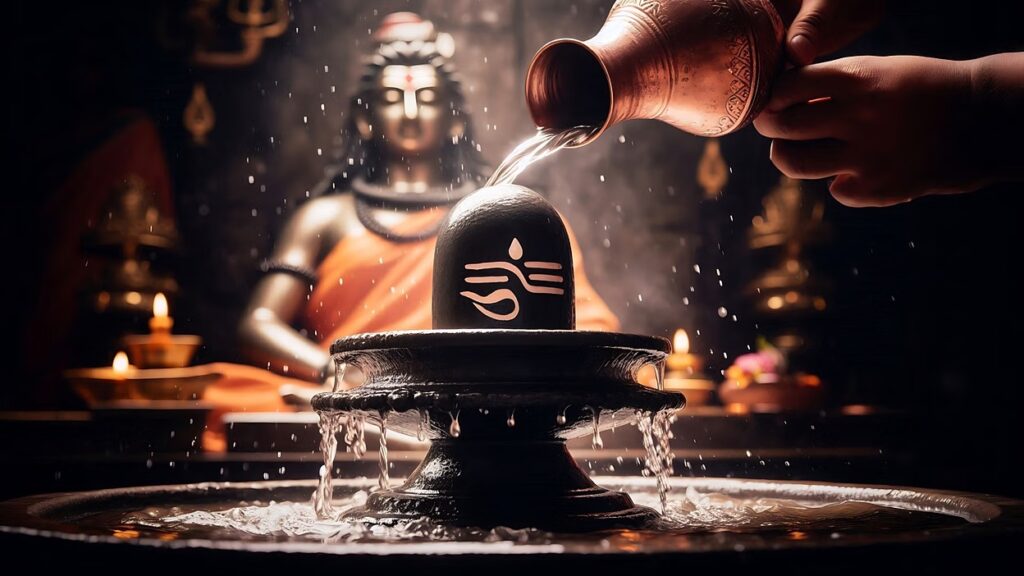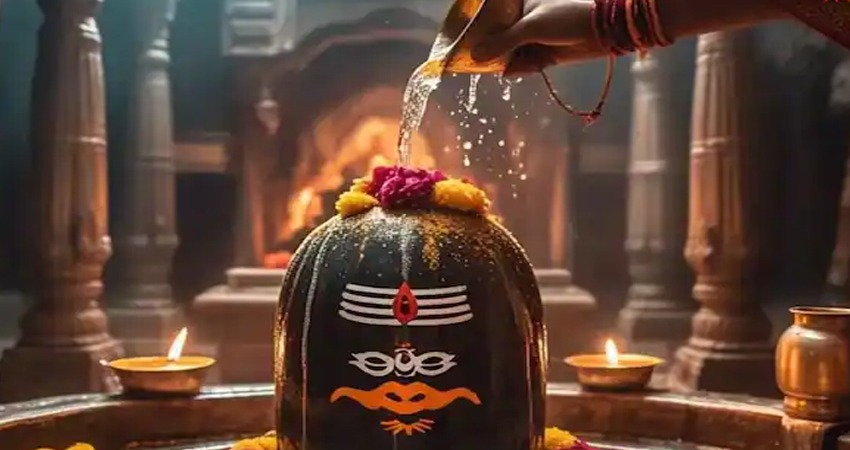First Monday of Sawan: Offer These to Lord Shiva to Seek His Blessings

First Monday of Sawan: Offer These to Lord Shiva to Seek His Blessings
Bholenath is easily pleased with simple offerings rooted in devotion and sincerity
The month of Sawan (Shravan) is considered highly auspicious for devotees of Lord Shiva, especially the Mondays that fall within it, known as Sawan Somvars. These days hold immense spiritual significance, as it is believed that sincere worship during this time brings the blessings of Bholenath, the compassionate and easily-pleased form of Lord Shiva.
On the first Monday of Sawan, thousands of devotees gather at Shiva temples to offer Jalabhishek (water offering) on the Shiva Linga, perform Rudrabhishek, observe fasts, and engage in prayers with utmost devotion. The Shiv Puran and other sacred texts describe this month as especially dear to Lord Shiva.
Known for his austere and simple lifestyle, Lord Shiva is far removed from grandeur and material indulgence. Instead, he is moved by heartfelt devotion and the simplest of offerings. Here are the items especially beloved by Lord Shiva that you can offer on the first Sawan Monday to enhance your prayers:

1. Water (Jal) and Milk (Dugdh)
Offering plain water is enough to please Shiva. It is believed to calm the mind and ease emotional turbulence. Milk is also dear to him and symbolises purity and physical well-being.
2. Datura (Dhatura)
A symbolic offering representing the devotee’s surrender of negativity and ego. It is believed to remove bad karmas and purify the soul.
3. Bael Leaves (Bel Patra)
Though not mentioned directly in your text, it is traditionally considered the most essential offering. Always offer in threes, with the middle vein removed.
4. Sandalwood (Chandan) and Bhasma (Sacred Ash)
Applying sandalwood and ash to the Shiva Linga and on one’s own forehead signifies purity, simplicity, and spiritual elevation. It’s said to bring honour and clarity.
5. Bhang (Cannabis)
Symbolically offered as a form of surrender, it represents leaving behind worldly vices at Shiva’s feet. It’s not for intoxication, but spiritual detachment.
6. Saffron (Kesar)
This offering is linked with enhancing patience, peace, and balance in the devotee’s life. It is believed to elevate inner purity and divine connection.
7. Curd (Dahi)
Just like milk, curd is symbolic of health and calmness. It’s offered to cool the fiery energy of Shiva and bring tranquility into life.
8. Ghee (Clarified Butter)
Seen as a source of vitality and radiance, ghee offerings are believed to build strength and self-confidence.
9. Honey and Sugar
These sweet offerings bring prosperity, love, and sweetness in relationships. They also symbolise nurturing and grace.
10. Perfume (Ittar)
Fragrance offered to Shiva is said to cleanse mental clutter and bring serenity and joy.
These offerings are rooted in deep symbolic meanings and religious traditions. While there’s no scientific proof, they reflect the emotional and spiritual connection devotees share with their deity.
Note: These rituals are based on folk beliefs and religious customs, and should be practiced with devotion and respect, rather than fear or superstition.











